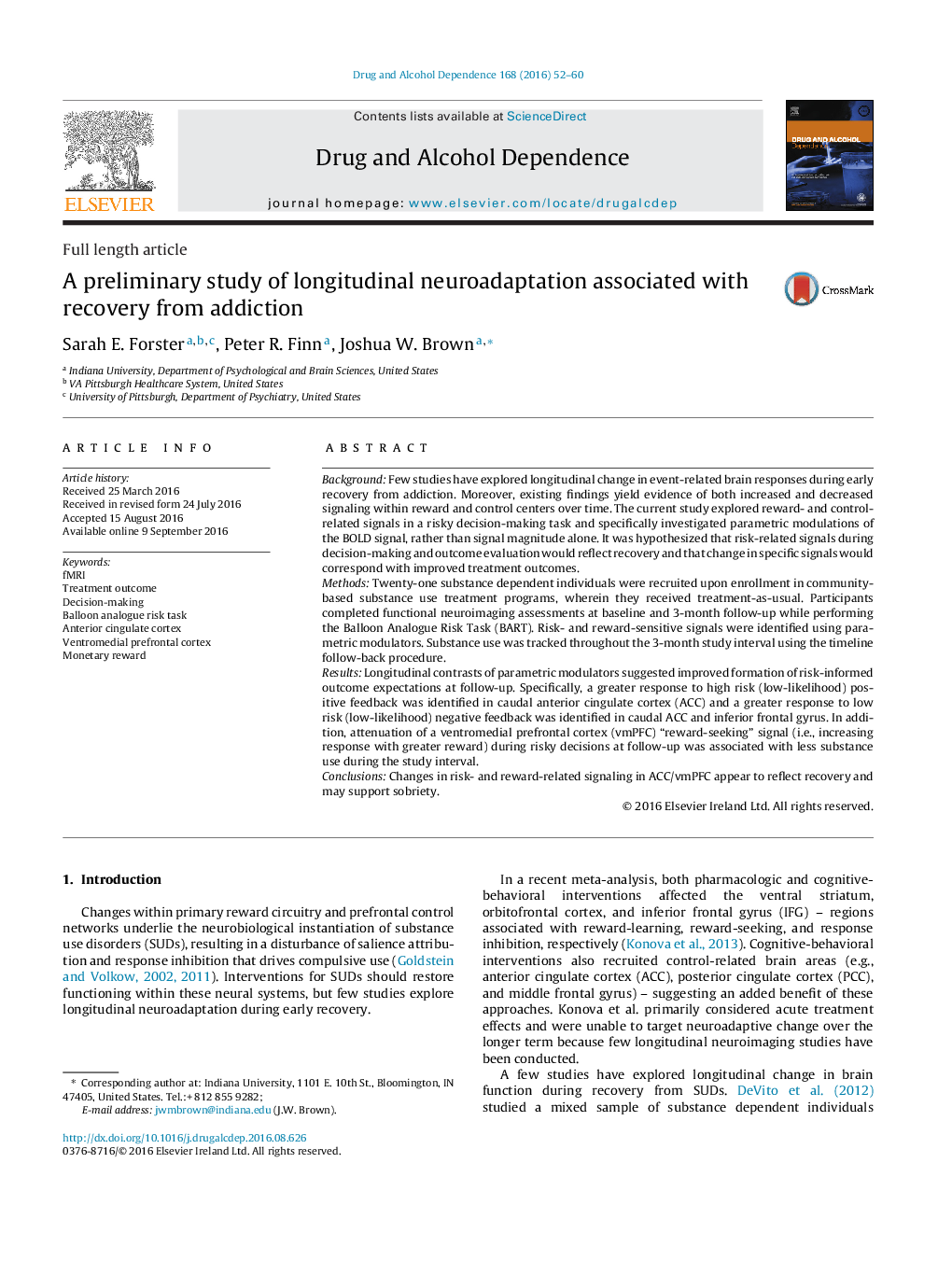| کد مقاله | کد نشریه | سال انتشار | مقاله انگلیسی | نسخه تمام متن |
|---|---|---|---|---|
| 5120448 | 1486123 | 2016 | 9 صفحه PDF | دانلود رایگان |
- Risk- and reward-related modulation of brain signal may index substance use recovery.
- Parametrically-modulated brain signals changed during early recovery from addiction.
- Attenuation of vmPFC reward-sensitive signals was associated with less substance use.
- Increased ACC/IFG sensitivity to unexpected outcomes was found following treatment.
- Change in risk/reward signals may reflect and/or support recovery from addiction.
BackgroundFew studies have explored longitudinal change in event-related brain responses during early recovery from addiction. Moreover, existing findings yield evidence of both increased and decreased signaling within reward and control centers over time. The current study explored reward- and control-related signals in a risky decision-making task and specifically investigated parametric modulations of the BOLD signal, rather than signal magnitude alone. It was hypothesized that risk-related signals during decision-making and outcome evaluation would reflect recovery and that change in specific signals would correspond with improved treatment outcomes.MethodsTwenty-one substance dependent individuals were recruited upon enrollment in community-based substance use treatment programs, wherein they received treatment-as-usual. Participants completed functional neuroimaging assessments at baseline and 3-month follow-up while performing the Balloon Analogue Risk Task (BART). Risk- and reward-sensitive signals were identified using parametric modulators. Substance use was tracked throughout the 3-month study interval using the timeline follow-back procedure.ResultsLongitudinal contrasts of parametric modulators suggested improved formation of risk-informed outcome expectations at follow-up. Specifically, a greater response to high risk (low-likelihood) positive feedback was identified in caudal anterior cingulate cortex (ACC) and a greater response to low risk (low-likelihood) negative feedback was identified in caudal ACC and inferior frontal gyrus. In addition, attenuation of a ventromedial prefrontal cortex (vmPFC) “reward-seeking” signal (i.e., increasing response with greater reward) during risky decisions at follow-up was associated with less substance use during the study interval.ConclusionsChanges in risk- and reward-related signaling in ACC/vmPFC appear to reflect recovery and may support sobriety.
Journal: Drug and Alcohol Dependence - Volume 168, 1 November 2016, Pages 52-60
